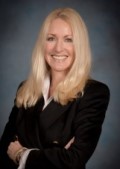Fortune Telling & Reliability? An Expert Testimony Enigma |
|
 Reprinted with permission. A fair number of people who visit RF Cafe have at some point been involved as an Expert Witness for a court case involving product liability and/or IP ownership or infringement. They quickly learn how important it is to have competent and renowned legal representation. IMS ExpertServices is a law firm specializing in expert witness cases. Every month or so they send me an article about specific court cases that could be of interest to RF Cafe visitors. This particular article is titled "Fortune Telling & Reliability? An Expert Testimony Enigma." It illustrates how dicey the process of selecting appropriate Expert Witnesses can be for legal teams - especially given the subjective nature of judges who decide on admissibility of evidence. ************ BullsEye: August 2013 Fortune Telling & Reliability? An Expert Testimony Enigma Posted by Maggie Tamburro on 2013/08/09 No question about it – some expert challenge outcomes are easier to foretell than others. That being said, we don't envy one magistrate judge's gatekeeper role in a case requiring a decision about whether expert testimony proffered on fortune telling and psychics is reliable.
If you query whether reliable expert testimony about fortune telling is an oxymoron, then read on.
But what resonates in this case isn't necessarily the court's decision on admissibility, although we confess to be a little curious to see the judge's ruling following the hearing reportedly held on July 22. Rather, it's how to apply the various factors affecting admissibility of expert testimony as contained in Federal Rule of Evidence 702 and the non-exhaustive factors of Daubert – in a criminal context such as this where expert testimony, reliability, and fortune telling seem somewhat paradoxical. A Case of Alleged Fraudulent Fortune Telling The case, recently reported on in the Sun Sentinel, could involve the fate of one defendant who has pled not guilty to criminal charges filed in a Florida federal court in connection with claims that she bilked clients out of millions of dollars by operating an alleged fraudulent fortune telling and psychic scam operation. Non-Scientific Expert Testimony and Daubert? The case involves the testimony of a proposed expert witness – a former police officer and licensed private investigator, who, according to court documents, has worked exclusively over the last few years assisting in criminal investigations involving fraudulent fortune telling and physic scams designed to exploit vulnerable individuals. The government has requested that the expert be allowed to testify on the attributes of such fraudulent fortune telling schemes, including testimony that the expert has noted a "common methodology" in scam operations throughout the U.S. that involve financial exploitation of a fragile individuals. Such attributes might include, for example, convincing individuals of an ability to communicate with spirits or to lift a curse, according to court documents. In short, the government asserts that Daubert does not require certain specialized knowledge in matters of law enforcement to be based in science if a proper foundation for reliability can otherwise be shown – for example, by way of the expert's knowledge or experience. Such non-scientific testimony has been previously allowed by courts in criminal cases, according to the argument, for example to show modus operandi or other kinds information not known to the average juror. The defense, however, has filed a motion to exclude the expert's testimony, alleging that it is not based on a scientific foundation or specialized knowledge, but instead amounts to speculative and subjective conclusions which fail to assist the trier of fact. The defense asserts that the expert's testimony will improperly offer an opinion as to a fortune teller's state of mind – something that can't be tested – and that a juror is perfectly capable of forming an opinion as to the matter. Turning to Federal Rule of Evidence 702 The case caused us to turn Federal Rule of Evidence 702 and its accompanying advisory committee notes for guidance on expert testimony involving more subjective, less verifiable testimony. A caveat: Just as the factors in Daubert are not meant to be a checklist, these points will not be applicable to every case involving expert testimony, as each case and the facts and circumstances are unique. Further, we wouldn't dare peer into the future in an attempt to predict the judge's decision here. But we did find this case presents an opportune time to take a look at some considerations with regard to admissibility of less-than-scientific expert testimony. The advisory committee notes to Federal Rule of Evidence 702, which specifically address the factors and applicability of Daubert and its progeny, Kumho, and Joiner, provide some important points that are worth noting in cases such as this, where less objective, less quantifiable and perhaps less verifiable expert testimony is at issue.
Do you think that the expert testimony proffered here should be admissible? Why or why not?
IMS Expert Services is the premier expert witness and litigation consultant search firm in the legal industry. IMS is focused exclusively on providing custom expert witness search services. We are proud to be the choice of over 95 of the AmLaw Top 100. Call us at 877-838-8464.
Other IMS ExpertServices BullsEye and Expert Library Articles on RF Cafe:
Posted August 28, 2013 |
|

